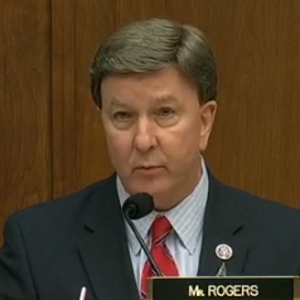
Rep. Mike Rogers, the ranking Republican on the House Armed Services Committee, said congressional testimony this week showed that President Joe Biden ignored the advice of top generals about what to do in Afghanistan while former President Donald Trump “did listen to it.” That’s not entirely accurate.
In testimony this week, Joint Chiefs of Staff Chair Gen. Mark Milley said that last November, Trump backed off an order moving up the date to take all troops out of Afghanistan to Jan. 15 after Milley and others spoke to White House officials “regarding the risks associated with such a withdrawal.”
Trump instead opted to reduce troop levels to 2,500.
But that went against the advice of top military officials, who recommended at the time that Trump not reduce troop levels below the then-level of 4,500 until the Taliban met conditions of an agreement reached with the White House back in February 2020.
Even after he left office, Trump continued to advocate that Biden stick to the May 1 deadline for complete withdrawal that was part of that February 2020 agreement, an agreement criticized during congressional testimony from both Milley and Gen. Kenneth McKenzie, commander of U.S. Central Command.
During the hearing, Rogers noted that testimony had shown Biden decided to completely withdraw troops from Afghanistan over the objections of Milley, McKenzie and Gen. Austin “Scott” Miller, then the top commander of U.S. and NATO forces in Afghanistan. They all relayed to Biden early in his presidency that they thought the U.S. should keep a force of at least 2,500 troops in Afghanistan to encourage a “negotiated solution” between the Afghan government and the Taliban. Rogers contrasted that with Trump allegedly following his generals’ advice.
Rogers, Sept. 29: I think the general officers here, and secretary, have made it very clear that they gave the president advice that he wouldn’t listen to. The last president, they gave him advice and he did listen to it.
However, Trump also didn’t listen to his top military advisers.
During House testimony on Sept. 29, Milley said that based on his advice and “the advice of the commanders at the time,” then-Secretary of Defense Mark Esper submitted a memorandum to the White House on Nov. 9 “recommending that we maintain the US forces, which were then at about 4,500 in Afghanistan until conditions were met for further reductions.”
That confirmed what Esper had told CNN in an Aug. 17 interview.
“My concern was that President Trump, by continuing to want to withdraw American forces out of Afghanistan, undermined the agreement, which is why, in the fall, when he was calling for a return of U.S. forces, by Christmas, I objected, and formally wrote in a letter to him, a memo, based on recommendations from the military chain of command and my senior civilian leadership that we not go further, that we not reduce below 4,500 troops, unless and until conditions were met by the Taliban,” Esper said in the interview. “Otherwise, we would see a number of things play out which are unfolding right now in many ways.”
On the day Esper submitted that memo, Trump fired him.
Milley testified that two days after Esper was fired, on Nov. 11, he received an “unclassified signed order [signed by Trump] directing the United States military to withdraw all forces from Afghanistan no later than 15, January, 2021.”
Coming five days before Biden would officially replace Trump as president, a pullout by that date would have allowed Trump to leave office having kept a campaign promise to pull all troops out of Afghanistan. (In the heat of the campaign on Oct. 7, 2020, for example, Trump tweeted, “We should have the small remaining number of our BRAVE Men and Women serving in Afghanistan home by Christmas!”) The Jan. 15 date was months earlier than the May 1 deadline for the withdrawal of all U.S. forces that was part of the withdrawal agreement.
Milley said he was not consulted on the order, and when he received it, he went to the White House with then-Acting Secretary of Defense Christopher Miller and his chief of staff to “discuss that order.”
The order to pull out all troops by Jan. 15 was subsequently rescinded, Milley said, “after further discussions regarding the risks associated with such a withdrawal.” On Nov. 17, Milley said he received a new order from Trump, this time directing that troop levels be reduced to 2,500 by Jan. 15.
So, in one sense, Trump apparently “listened” to the advice of top military advisers, who warned not to pull out all troops by Jan. 15. But even reducing troops from the November levels went against the advice of Trump’s top military officials.
McKenzie made that clear during questioning on Sept. 28 from Democratic Sen. Jack Reed.
Reed, Sept. 28: Gen. McKenzie, again, your advice with regard to maintaining 2,500 troops has been reiterated repeatedly, but you also recommended in the fall of 2020 4,000 troops. Was that correct?
McKenzie: Sir, that is correct. I recommended that we … In the fall of 2020 when we were having deliberations, I recommended that we hold at that level.
Reed: And that was rejected by the Trump administration?
McKenzie: Sir, it was.
Trump also never backed off the May 1 withdrawal date in the agreement with the Taliban — something both Milley and McKenzie said they opposed.
In a statement, released on April 18, Trump criticized Biden’s extension of the withdrawal deadline to Sept. 11, saying, “we can and should get out earlier.” Trump concluded, “Getting out of Afghanistan is a wonderful and positive thing to do. I planned to withdraw on May 1st, and we should keep as close to that schedule as possible.”
Trump even boasted at rallies in June and July that the agreement his administration reached with the Taliban likely prevented Biden from backing out of the U.S. commitment to a complete withdrawal.
“I started the process,” Trump said at a rally in Ohio on June 26, his first since leaving office. “All the troops are coming back home. They [the Biden administration] couldn’t stop the process. 21 years is enough. Don’t we think? 21 years. They couldn’t stop the process. They wanted to, but it was very tough to stop the process when other things… It’s a shame.”
At a rally in Phoenix on July 24, Trump again boasted, “I started the move out of Afghanistan,” adding, “I think it was impossible for him [Biden] to stop it, but it was a much different deal.”
During their congressional testimony this week, both Milley and McKenzie criticized the February 2020 agreement, known as the Doha agreement. The pact included the release of 5,000 Taliban fighters who had been held as prisoners by the Afghanistan government, which was not a party to the agreement. Although then-Afghan President Ashraf Ghani objected, under pressure from the U.S. government, he eventually agreed to release the prisoners.
But while the U.S. “adhered to every condition” in the agreement, the Taliban never did, Milley testified in the House hearing on Sept. 29.
“There were seven conditions applicable to the Taliban and eight to the United States,” Milley said. “While the Taliban did not attack the United States forces, which was one of the conditions, it failed to fully honor any other condition under the Doha agreement. And perhaps most importantly for the United States’ national security, the Taliban has never renounced their linkages with al Qaeda or broke their affiliation with them.”
Milley said that’s why he and other military advised in November 2020 against further troop reductions until the Taliban started upholding all of its commitments in the agreement.
“In the fall of 2020 my analysis was that an accelerated withdrawal without meeting specific and necessary conditions risks losing the substantial gains made in Afghanistan, damaging U.S. worldwide credibility, and could precipitate a general collapse of the ANSF [Afghan National Security Forces] and the Afghan government resulting in a complete Taliban takeover or general civil war,” Milley said in his Senate testimony on Sept. 28. “That was a year ago. My assessment remained consistent throughout.”
Nonetheless, as we said, Trump ultimately ordered further troop reductions to 2,500 by Jan. 15.
“My assessment is yes … it [the Doha agreement] did affect the morale of the Afghan security forces,” Milley said.
“From the relatively short-term perspective, I think the Doha agreement, and the signing of the Doha agreement, had a really pernicious effect on the government of Afghanistan and on its military. Psychological more than anything else,” McKenzie said before the House the following day. “But we set a date certain for when we were going to leave, and when they could expect all assistance to end. So, for the first time, there was something out there in front of them.”
Defense Secretary Lloyd Austin agreed with McKenzie’s assessment at the House hearing.
“As a part of that agreement, we agreed to cease conducting air operations against the Taliban. So, the Taliban got stronger,” Austin said. “They increased their offensive operations against the Afghan security force, and the Afghans were losing a lot of people on a weekly basis. In addition to that, we caused them to release 5,000 prisoners. And many of those prisoners went back to fill the ranks of the Taliban. So they got a lot stronger. They continued their attacks. We got smaller. And so I agree with Gen. McKenzie, that’s when you could begin to see things really begin to head in a different direction.”
Trump has since criticized Biden, calling the withdrawal of troops a “total surrender.”
“He ran out of Afghanistan instead of following the plan our administration left for him,” Trump said in a statement on Aug. 14.
But as we said, Trump had also been moving toward withdrawing all troops from Afghanistan, even as the Taliban was violating the conditions it agreed to at Doha. And he did so against the advice of his top military advisers.
Editor’s note: FactCheck.org does not accept advertising. We rely on grants and individual donations from people like you. Please consider a donation. Credit card donations may be made through our “Donate” page. If you prefer to give by check, send to: FactCheck.org, Annenberg Public Policy Center, 202 S. 36th St., Philadelphia, PA 19104.
The post Trump Rejected Generals’ Advice, Too appeared first on FactCheck.org.

